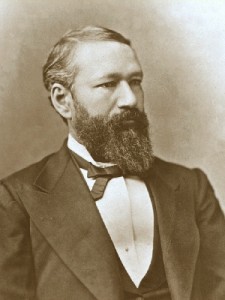(b. May 10, 1837, Macon, Ga., U.S.–d. Dec. 21, 1921, Washington, D.C.), freeborn black who was a Union officer in the American Civil War and a leader in Louisiana politics during Reconstruction (1865-77).
Pinchback was one of 10 children born to a white Mississippi planter and a former slave–whom the father had freed before the boy’s birth. When the father died in 1848, the family fled to Ohio, fearing that white relatives might attempt to re-enslave them.
Pinchback found work as a cabin boy on a canal boat and worked his way up to steward on the steamboats plying the Mississippi, Missouri, and Red rivers. After war broke out between the states in 1861, he ran the Confederate blockade on the Mississippi to reach Federal-held New Orleans; there he raised a company of black volunteers for the North, called the Corps d’Afrique. When he encountered racial discrimination in the service, however, he resigned his captain’s commission.
Returning to New Orleans after the war, Pinchback organized the Fourth Ward Republican Club and served as a delegate to the convention that established a new constitution for Louisiana. He was elected to the state senate in 1868 and then was named its president pro tempore; as such he became lieutenant governor upon the death of the incumbent in 1871. From Dec. 9, 1872, to Jan. 13, 1873, he served as acting governor while impeachment proceedings were in progress against Henry Clay Warmoth. In the meantime he went into business and acquired control of a Republican paper, the New Orleans Louisianian.
In 1872 Pinchback was elected to Congress, but his Democratic opponent contested the election and won the seat. A year later he was elected to the U.S. Senate, but he was again refused the seat amid charges and countercharges of fraud and election irregularities–although some observers said it was the colour of his skin that counted against him. He was appointed to his last office in 1882 as surveyor of customs in New Orleans.
At the age of 50 he decided to take up a new profession and entered Straight College, New Orleans, to study law; he was subsequently admitted to the bar. Disillusioned with the outcome of Reconstruction and the return to power of the traditional white hierarchy, he moved to Washington, D.C., where he remained active in politics.
